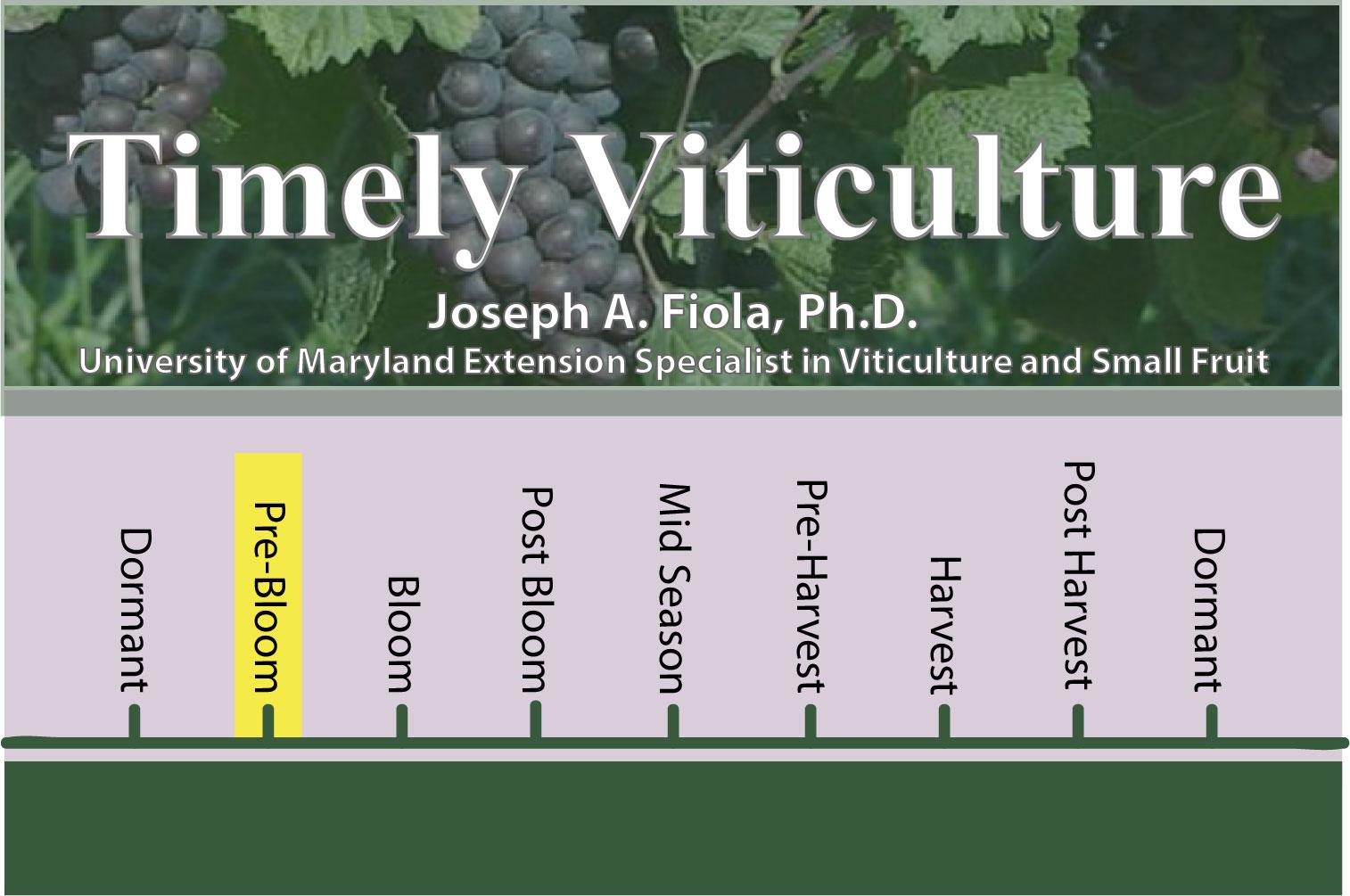Using Difenoconazole Fungicides for Effective Disease Management
Difenoconazole is a sterol-inhibiting (SI) fungicide recently registered for use on grapes and other fruit. It belongs to FRAC Group 3, along with myclobutanil (Rally), tebuconazole (Elite, Tebuzol, Orius), and fenarimol (Vintage, formerly Rubigan). Difenoconazole protects vines and fruit from powdery mildew (PM), black rot (BR), and Phomopsis cane and leaf spot.
Difenoconazole is sold in two premixes for managing multiple wine grape diseases, both manufactured by Syngenta Crop Protection.
- Revus Top contains mandipropamid and difenoconazole. Mandipropamid is new chemistry (Group 40) effective only against downy mildew (DM). Revus Top is available under a supplemental label in Maryland for use on grapes for control of PM, DM, BR, and Phomopsis. Growers must have a copy of the supplemental label in their possession to apply Revus Top legally. Download the Maryland supplemental label at https://www.syngenta-us.com/fungicides/revus-top
- Inspire Super contains cyprodinil and difenoconazole. Cyprodinil (Group 9) is effective only against Botrytis bunch rot. It is the active ingredient in Vangard and one component of the premix Switch (cyprodinil + fludioxonil). Inspire Super has a full label in Maryland for use on grapes for control of PM, BR, Phomopsis, and Botrytis (but not DM).
Growers who have had trouble controlling PM because of loss of sensitivity to other SI fungicides (e.g., Rally, Elite, Orius, Tebuzol) may want to consider switching to Revus Top or Inspire Super, especially during the critical period for protecting developing fruit from major diseases (the pre-bloom to 1st post-bloom sprays). Other options for controlling resistant strains of PM include: (1) adding 2-5 lbs/ac of sulfur to tank mixes containing Rally or Elite/Orius/Tebuzol; or (2) switching to fenarimol, an older SI that has recently been reformulated as Vintage SC (Gowan). Vintage is effective only against PM, not BR or Phomopsis.
Guidelines for Effective Use of Difenoconazole
- Sensitive varieties. On non-vinifera grapes, especially V. labrusca and V. labrusca hybrids, difenoconazole may cause leaf burning or other injury. Adding difenoconazole to tank mixtures with materials that increase uptake (adjuvants, foliar fertilizers) may increase the risk of injury. Do not use difenoconazole on Concord, Concord Seedless, or Thomcord grapes. According to Syngenta, Revus Top is safe to use on these varieties:
| Niagara | Fredonia | Catawaba | Rougon | deChaunac |
| Riesling | Elvira | Leon Millot | Baco Noir | Foch |
| Chancelor | Chelois | Seyval Blanc | Delaware | Cayuga |
| Diamond | Chardonnay | Vidal Blanc | Cabernet Blanc | Aurora |
| Colobel | Chambourcin | Pinot Noir | Pinot Blanc | Pinot Gris |
| Gewurztaminer | Gamay Noir | Vignoles | Muscat Ottonel | Golden Muscat (Muscat var.) |
| Alden | Canadice (?) | NY Muscat | Yates | St. Croix |
| Leon Millot | Merlot | Cabernet Franc | Interlaken | Cabernet Sauvignon Blanc |
| Pinot Grigio | Viognier | Backus | Steuben | Traminette |
| Vadal | Corot Noir | Dornfelder - German Var. | Lemberger | Ravat |
- Use an effective rate. Inspire Super at the high rate (20 oz/ac) and Revus Top at the supplemental label rate (7 oz/ac) provide equivalent amounts of difenoconazole per acre, about 1/4 of the seasonal limit.
- Adjust your spray program for the premix. When applying Revus Top, omit other DM materials such as mancozeb and captan from those sprays. For Inspire Super, omit any other botryticide from those sprays.
- Resistance management. Limit applications of any SI, including difenoconazole, to two per year, if possible. Rotate to another class of fungicide after each SI application.
- If you apply Revus Top during the critical period, do not apply Revus for later-season DM control to avoid overusing mandipropamid. See Extension Fact Sheet 848, The New Guidelines for Developing an Effective Fungicide Spray Program for Wine Grapes in Maryland, 2010 for other options.
- If you apply Inspire Super during the critical period, use Pristine or Elevate for later-season Botrytis sprays, not Vangard or Scala, which also contain cyprodinil.
- If you apply Revus Top during the critical period, do not apply Revus for later-season DM control to avoid overusing mandipropamid. See Extension Fact Sheet 848, The New Guidelines for Developing an Effective Fungicide Spray Program for Wine Grapes in Maryland, 2010 for other options.
For more information, contact Dr. Joseph A. Fiola at jfiola@umd.edu.
Timely Viticulture is designed to give those in the Maryland grape industry a timely reminder on procedures or topics they should be considering in the vineyard.
